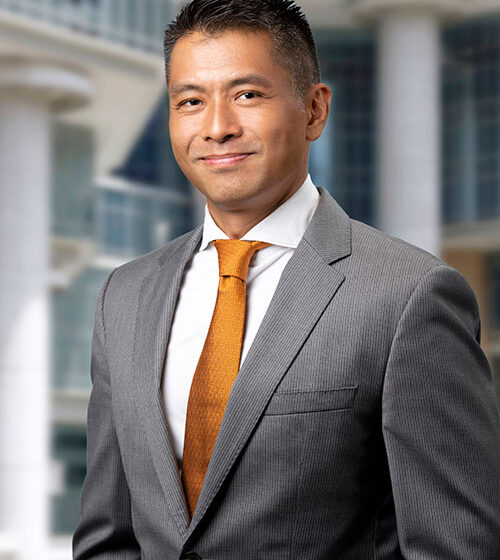Estate Planning FAQ: Trusts
A Trust is a brilliant way of ensuring that your assets are used for a specific purpose and are properly managed on behalf of the beneficiaries. Aside from achieving thorough and efficient Estate Planning and determining exactly who will reap the benefits of your prosperity, a Trust can also ensure to efficiently transfer assets and family wealth through generations or achieve specific charitable purposes. A Trust can also provide benefits to all or some employees of a company (usually known as EBT – Employee Benefit Trusts) or it can be a powerful tax planning tool.
Q1. What is a Trust?
A Trust is a three-party fiduciary relationship in which a party (called the trustor or settlor) transfers properties and assets to a second party (called a Trustee) for the benefit of a third party (one or more beneficiaries).
A Trustee can be a person or company. These are the legal owners of the assets held in trust. There must be at least one Trustee named in a Trust, but the individuals or companies appointed can be changed. In many cases the Trustee is a family member or friend whom you have full confidence on, however other times a bank, a Private Trust Company or a law firm is appointed instead.
A beneficiary is the person(s) or organisation for which the assets are held in trust.
Hong Kong has inherited the legacy of a world-class legal system and the common law trust. The territory’s trust law adheres closely to English and post-Commonwealth case law. In subject matters related to Trust Administration, case law is supplemented by the Trustee Ordinance, Cap. 29.
Q2. What are the main benefits?
There are many reasons but one of the most common is to protect assets for a loved one who is too young to handle their own affairs. Trusts are often also used to protect assets from creditors or tax liability, to benefit charities, to make provisions for your care in later life, to help someone after your death, or to make sure your money is used to look after you, if you cannot look after yourself.
A Trust can be particularly helpful if you have a child or dependant with special needs or disabilities and you’re concerned how they will manage financially after your death.
Contrary to bequests under a Will, a beneficiary under a Trust is eligible to enjoy the benefit once the settlor has transferred assets into the Trust. If properly drafted, a Trust can also carry additional benefits such as asset protection against creditors, succession and tax planning. It is particularly useful when there are young or incapacitated beneficiaries who are not able to manage their affairs or when the property and assets are expected to benefit many generations.
Q3: How to keep control of a Trust?
Despite the many potential benefits of a Trust, some clients find it difficult to give up control and have complete confidence in a third-party to manage their properties and assets. However, in order for a Trust to be valid, there must be a genuine alienation of the assets contained in the Trust. It is acceptable for the settlor to be a beneficiary and retain some control, such as investment decisions, but if the settlor retains too much control, the Trust may be challenged. In administering the Trust, the Trustee takes into account the settlor’s guidelines and suggestions but they must still have independent thought and action when the Trust Deed empowers them with such discretion.
Nowadays, a settlor can retain some control in the Trust by:
- writing a letter of wishes to set out detailed guidance for the Trustee;
- appointing a protector of the Trust to monitor the Trustee and even have the power to remove the Trustee after the settlor’s passing, and
- reserving certain powers in the settlor or other trusted persons, typically investment management powers.
However, it is important to bear in mind that given that there could be unexpected events that may occur in the future, it is advantageous for the Trustee to be able to retain some discretion to deal with various contingencies in the best interests of the beneficiaries.
Q4: What types of Trusts are available?
There are different types of Trusts for different purposes depending on the settlor’s needs and goals. However, the essential characteristic of all Trusts is the separation of legal and beneficial ownership.
Generally speaking, Trusts can be separated into three categories:
- inter vivos or testamentary;
- revocable or irrevocable;
- fixed or discretionary.
The categories may overlap. For example, one of the most common Estate Planning tools is an inter vivos irrevocable discretionary Trust.
An inter vivos Trust (also known as Living Trust) is created during the settlor’s lifetime. Ownership of the assets is passed to the Trustee when such assets are injected into the Trust by the settlor. The Trust can begin to operate as soon as the assets have been transferred to the Trust. It is common for this type of Trust to benefit the settlor during the settlor’s lifetime and continue to benefit the settlor’s surviving family members and/or charities after the settlor’s death. An inter vivos Trust can be revocable or irrevocable. The Trustee can be given lots of discretion or the settlor can retain more control depending on how the Trust Deed is drafted.
A testamentary Trust (also known as Will Trust) is formed under the terms of the Will, which should include Trust provisions to govern the Trustee’s powers and obligations. The settlor is the testator and the Trustee is usually the executor. The Trust Fund is the residuary estate and ownership of the assets remains with the settlor testator until his/her death. The probate process must be completed before the Trust can benefit beneficiaries.
A revocable Trust can be changed or revoked by the settlor at any time and the Trust assets would revert back to the settlor. Although this gives the settlor more flexibility and room to change his/her mind, it is less useful in terms of asset protection.
An irrevocable Trust cannot be revoked after the Trust Deed has been signed and the assets have been transferred into the Trust. The beneficiaries’ interests under an irrevocable Trust are more secured. Since the settlor gives up control, asset protection is more effective.
In a fixed Trust each beneficiary’s entitlement to the Trust Fund under the Trust is specifically set out in the Trust Deed and the Trustee has no discretion regarding the distribution of the Trust Fund. This type of Trust is most certain, but the Trustee is less equipped to deal with contingencies that may arise in the future, e.g. divorce, other third-party claims or medical emergencies.
In a discretionary Trust each beneficiary’s entitlement to the Trust Fund under the Trust is not fixed and the Trustee is given many powers and flexibility to deal with changes in circumstances such as death or divorce of a beneficiary, changes in tax regimes and legislations. Distributions can be in different amounts, in different stages or contingent upon certain conditions.
Q5: Under which conditions a Trust is valid?
In addition to the separation of legal and beneficial ownership, a Trust can only be enforceable if the ‘three certainties’ are fulfilled. These are:
- certainty of intention – the settlor must have demonstrated a clear intention to create a Trust;
- certainty of subject matter – what constitutes the Trust property;
- certainty of object – the beneficiaries under the Trust must be ascertainable.
For example, unborn future children of the settlor can constitute a class of beneficiaries, but ‘close friends of the settlor’ is too vague. Although a Trust can be created orally, in order to minimize ambiguity and potential disputes, a Trust should be governed by a Trust Deed which sets out the beneficial provisions as well as duties and powers of the Trustee so that certainty and predictability can be achieved.
Q6: What should I consider when appointing a Trustee?
For many people, the major hurdle is finding the right Trustee. There is no standard answer as the wishes of the settlor, family circumstances and asset picture or holding structure can all affect the choice of Trustee.
For some individuals having an individual Trustee is attractive because one knows exactly who will be handling the assets and affairs. Understandably, it may be easier to trust a relative or a close friend as compared to a bank or Private Trust Company because the Trust is stemmed from actual bonding and close personal relationship. On the flip side, an individual Trustee may not possess the requisite knowledge and experience to deal with complications that may arise. More importantly, since the settlor must pass the legal ownership to the Trustee, appointing an individual Trustee means that the assets will be tied to contingencies and personal circumstances of the individual Trustee, including his/her personal events, incapacity or death.
A professional Trustee would not die, become incapacitated or get divorced. If most of the Trust assets are funds in bank accounts managed and invested by the bank, it may be more convenient to set up a Trust directly with that bank. However, a bank or a Private Trust Company does charge for their services. Understandably, some clients are concerned whether a professional Trustee would know and carry out his/her wishes after his/her death. Such concern may be alleviated by appointing a protector and having a more detailed Letter of Wishes to guide the Trustee. Another potential drawback of appointing a professional Trustee is that depending on the policy of the bank or Private Trust Company, a professional Trustee may not be able to accept all types of assets into the Trust.
For information purposes only. Its contents do not constitute legal advice and readers should not regard this as a substitute for detailed advice in individual instances.





